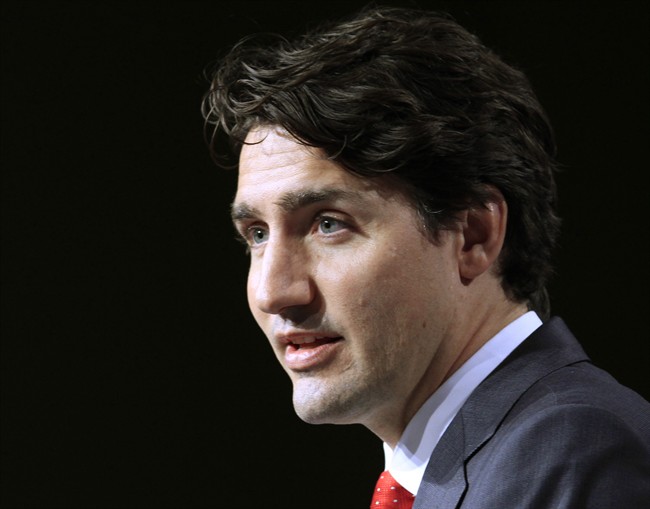OTTAWA – Prime Minister Justin Trudeau waded into the debate Friday about how to boost wages for Canada’s low- and middle-income earners, indicating his government won’t follow provinces that have opted to raise minimum wages.

Minimum wages have continued to go up annually, but some provinces are set to do more.
READ MORE: A look at minimum wages across Canada
Alberta is moving its minimum hourly wage to $15 by 2018. Ontario increased its minimum for the third consecutive year just a few days ago and is considering whether to provide a guaranteed minimum income — a no-strings benefit that could replace various targeted social benefits.
Both ideas have been pushed by experts and social advocates as potential solutions to the conundrum of how to boost the financial fortunes of low-income and middle-class Canadians.
Trudeau rejected the idea raising the federal minimum wage as part of his government’s economic strategy.
“It’s not just about putting a little more money in peoples’ pockets, it’s about making sure that they have the conditions to be able to succeed,” Trudeau said Friday in Toronto.
An internal government discussion paper appears leery about either option being able to provide an economic and income boost.
WATCH BELOW: Fight for minimum wage
The July 2015 discussion paper from Employment and Social Development Canada says increases to minimum wages can have “negative overall employment impacts,” and end up missing those workers who need the extra money and greater income security.

Get weekly money news
“It is a blunt instrument that tends to benefit youth still living at home with their parents as opposed to low-income families,” reads the document, marked “Secret” and obtained by The Canadian Press under the Access to Information Act.
The conclusion is at odds with other research that suggests increases in the minimum wage have few employment effects.
The discussion paper from last year says income growth for so-called middle-income families has kept pace with the top earners in the country over the last three decades only because they have been working more, not because their wages have gone up, officials wrote.
READ MORE: Reality check: Is a $15 minimum wage bad for the economy?
As well, they added, women’s labour force participation rates have climbed so much over the last 30 years that it is questionable as to whether the rates can go much higher.
The two issues combined led the authors of the paper to question whether middle-class families — which politicians of all stripes say they want to help — will see their incomes stagnate in the coming years.
The paper questioned whether hiking minimum wages, or providing a guaranteed annual income could combat the “hollowing out” of middle-income jobs, a process that the paper says could intensify with the pace of technological changes, the “routinization of jobs” and globalization.
That hollowing-out process creates “barriers to upward social mobility,” and act as a disincentive for families to pursue post-secondary education, which could affect “productivity and economic growth.”
Trudeau told a business crowd in Toronto Friday that his government didn’t see raising the federal minimum wage as the ideal solution to help those who face various economic barriers.
READ MORE: It’s official: Alberta’s minimum wage will be $15 an hour by 2018
“There is no magic bullet,” Trudeau said.
“We have to work across many jurisdictions, and across many different challenges in order to drop one by one all the various barriers that … too many Canadians face to succeeding.”
A change in the federal minimum wage would only affect workers in federally regulated businesses, such as banks and telecommunications companies, which account for six per cent of workers nationwide. Minimum wage rules for other workers fall under provincial jurisdiction.
Trudeau said his government is instead focused on helping people succeed by giving families more money through the new child benefit, making investments in infrastructure to boost productivity and helping low- and middle-income students afford post-secondary education.



Comments